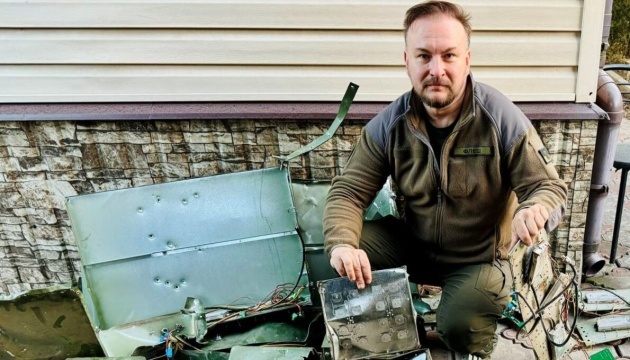
Role of ground drones in combat missions set to increase - expert suggests "swarm" solutions
In the future, the role of ground robotic systems in combat operations will increase while currently, progress in the industry is being held back only by budget constraints.
This opinion was expressed in an interview with Ukrinform by Serhiy Beskrestnov (call sign Flash), a military expert in electronic warfare and communications systems, head of the Center for Radio Technologies.
"There are nuances that hinder the development in this segment. But I believe that this is the future. And there are quite a few manufacturers in Ukraine," he noted.
According to the expert, progress in the industry is being held back only by budget constraints. If the government could procure such robots in large numbers, they would be employed much more actively, but currently they only cover the Army’s priority needs.
"The Ministry of Defense procures what the Army asks for. And when the needs of the brigades are studied and someone asks if they need such a robot or, say, 100 FPVs for the same amount of money, then any brigade will choose 100 FPVs. That’s because they know how to fly them, they use them to hold their ground. But if you offer them both, things will move forward,” Beskrestnov explained.
Ground robotic systems are more expensive than FPVs, the expert admits, adding that another challenge is that the government is allowed to procure only MoD-codified systems, those certified by the military. For other types of weapons, alternative funds must be sought.
“And there are not so many such models, perhaps a dozen, of which several are really good, battle-tested, and used in the Armed Forces of Ukraine. Brigades can, for example, buy robots directly from manufacturers at their own expense or at the expense of subventions, but the cost is too high. In addition, the military is yet to fully understand how to optimally employ these platforms,” the expert explained.
According to Beskrestnov, ground drones can be controlled via fiber optics, while the use of AI is limited. “Manufacturers are already eyeing drones that would be controlled via fiber optics, just like aerial systems. AI in the field of UAVs is primarily used to recognize targets and make decisions to open fire. With ground robots, it can only be, let’s say, a model for laying routes,” the expert explained.
For ground unmanned platforms, relevant swarm solutions can also be applied, where robots “communicate” with each other on joint missions, the expert says.
“This is where, say, 15 robots are deployed, constantly exchanging situational awareness data with each other, ‘thinking’ together. And if a robot encounters a mine and gets destroyed, at that moment other robots ‘understand’ that they must avoid that area, thus making a detour maneuver,” Beskrestnov said.
Unmanned aerial vehicles in such swarms can divide the territory into sectors for inspection. To organize such robotic operations, commanders need a lot of unmanned aerial vehicles, which is currently a problem. But in this format it is possible to use AI capabilities in this area. “This is how artificial intelligence works – this is its typical application in a swarm solution, to perform tasks by a group of robots according to a certain algorithm or without it. This can be done,” said the expert.
As reported eaerlier, Beskrestnov predicted that from the moment the Russians have enough drones to target not only heavy equipment but also manpower, soldiers will be forced to hide in dugouts longer, so they could be replaced by ground robots.
As Ukrinform reported earlier, the Defense Procurement Agency of the Ministry of Defense has concluded agreements with a domestic manufacturer for the supply of ground-based kamikaze drones and ammunition worth over UAH 3.7 billion.
Photo courtesy of Serhiy Beskrestnov
